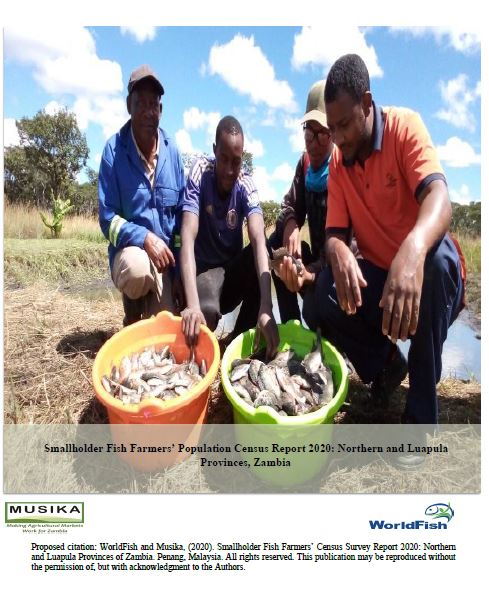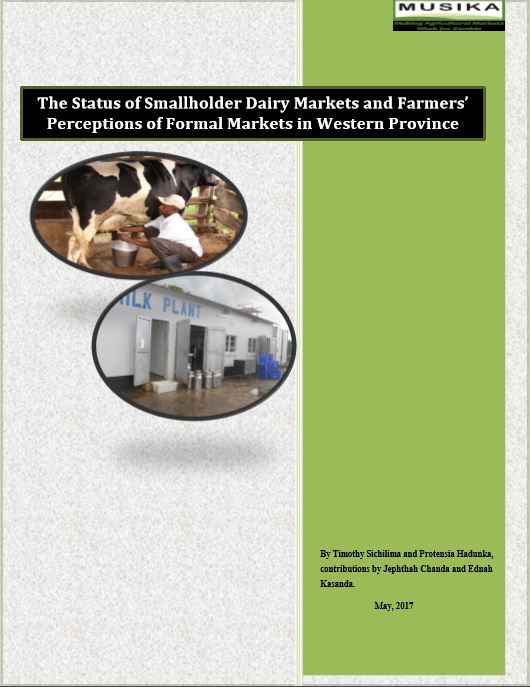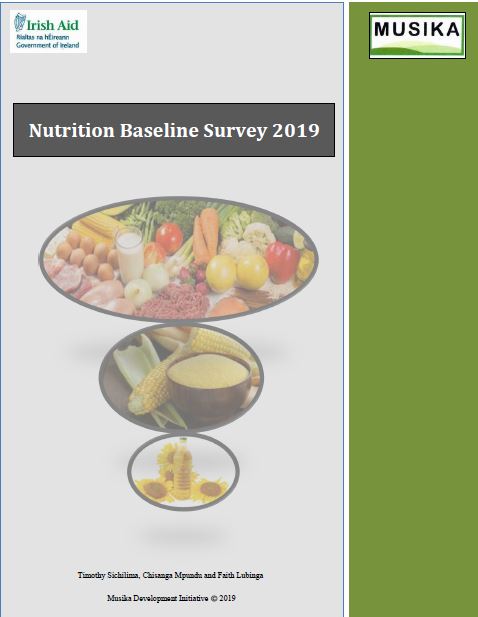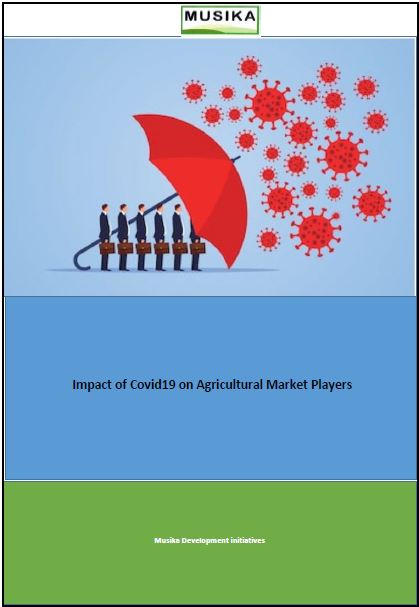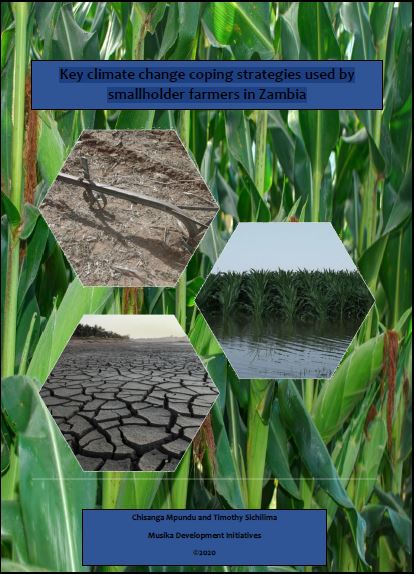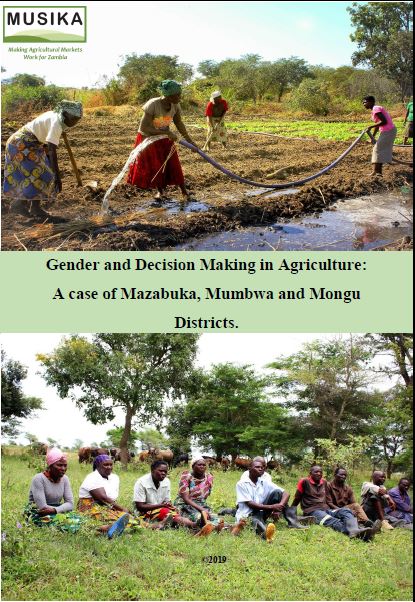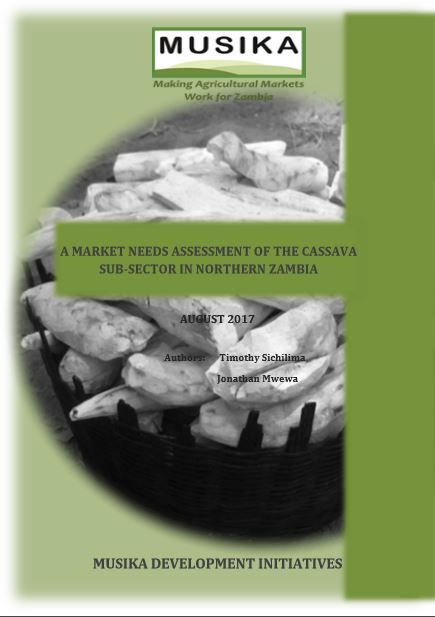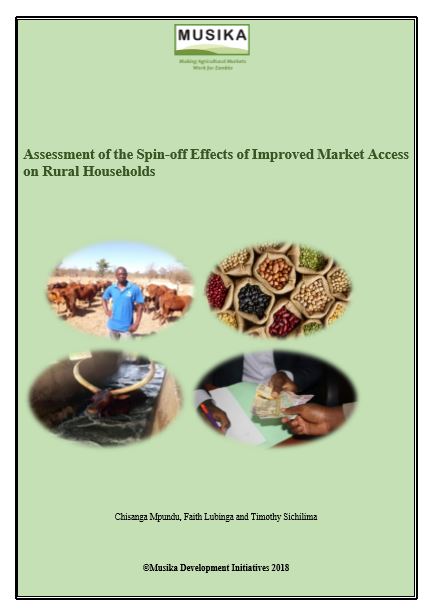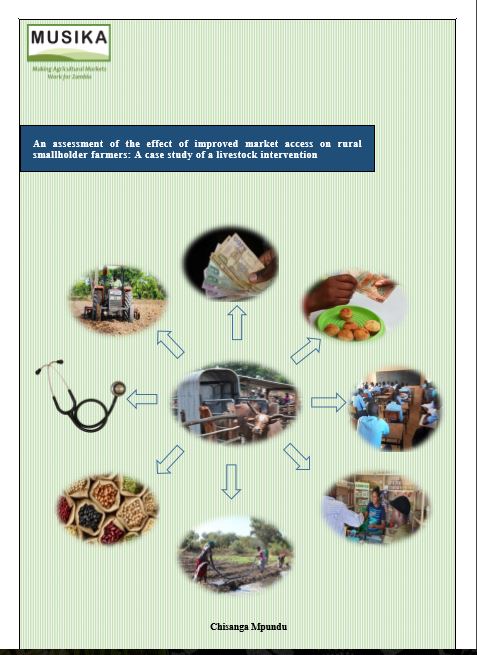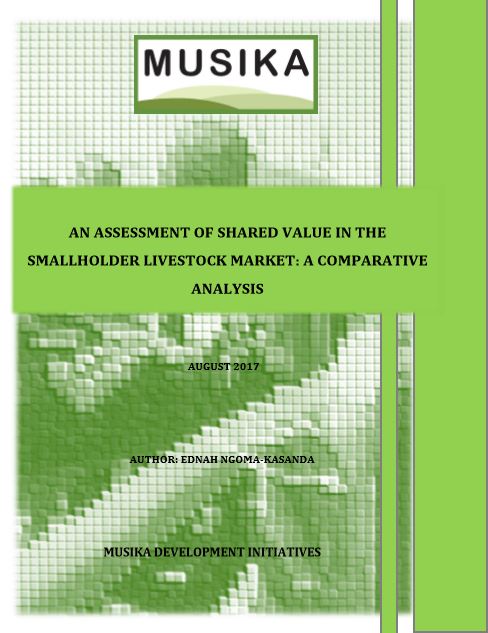Smallholder Fish Farmers’ Population Census Report 2020: Northern and Luapula Provinces, Zambia
The main objective of the census was to understand the smallholder fish farmers’ landscape, especially women and youth. It provided a baseline data for the Aquaculture technical, vocational, and entrepreneurship training for improved private sector and smallholder skills project implemented by WorldFish in partnership with Musika in Northern and Luapula Province. The aquaculture value chain development goal of the project is to increase the number of human resources working for the private sector and the number of smallholder commercial fish farmers with enhanced aquaculture knowledge and up-to-date practical skills to help sustainably grow the sector and make it more inclusive.
More info →The Status of Smallholder Dairy Markets and Farmers’ Perceptions of Formal Markets in Western Province
The cattle industry is a key component in the Zambian livestock sector which has the potential of contributing to poverty reduction and economic growth. However, the sector is fraught with low productivity levels, low participation rates in dairy markets by smallholder farmers and few agribusiness players that provide an off-take market.
Musika supported a dairy processing firm, herein referred to as MPF, with storage equipment and logistical support so as to enhance its capacity to provide extension services and a milk market for rural farmers. Following the implementation of the intervention, Musika undertook a study in order to understand the status of smallholder dairy markets and farmers’ perception of formal dairy market in Western Province.
Nutrition Baseline Survey 2019
Malnutrition has remained stubbornly high amongst Zambians over the past decade, especially amongst the rural households. Zambia is one of the countries with the highest levels of undernourishment in the world with a prevalence of about 45% (FAO et. al., 2018). One of the major contributors to the high malnutrition levels are the high poverty levels experienced in the rural areas, estimated to be around 76% (CSO, 2015). It is against this background that Musika, using its market oriented approach, envisions contributing towards a reduction in malnutrition levels amongst the rural households across the country through the “Making Zambia’s Agricultural Markets Work for Nutrition” initiative. Under this specific project, Musika seeks to achieve increased consumption of a diverse range of nutritious foods among poor Zambians, especially amongst women and children and within smallholder farming and rural communities.
More info →Impact of Covid19 on Agricultural Market Players
The outbreak of the COVID-19 pandemic has resulted in unprecedented global public health and economic crises. The effect of the pandemic has been felt by all key stakeholders, most especially the private sector as it has continued to impact on their business operations. This study specifically takes a snap shot of the effect of the pandemic on the private sector operating in the agricultural sector.
More info →Key climate change coping strategies by smallholder farmers in Zambia
In order to increase and sustain farmers’ production, productivity, income and food security in the wake of climate change, various methods of production have been invented and published to counter effects of climate change. However, many farmers in rural areas do not get to have the resources needed to adopt some of these climate mitigation strategies. Various studies have shown the devastating effects of climate change on farmers and the nation at large as food is needed by all. Farmers have experienced the effects of droughts, floods, high temperatures etc. and have had to adapt to the current changes for survival. This study focused on finding out the techniques used by the farmers to mitigate against climatic hazards and how they access the information needed to fight climate change.
More info →Gender and Decision Making in Agriculture: A case of Mazabuka, Mumbwa and Mongu Districts
Small scale farming is the main source of income and employment for most Zambians in both the formal and informal sectors, accounting for 80% of the total employment in the informal sector. The informal sector (particularly agriculture) has a proportionately higher number of women than men working in it. The high share of both formal and informal employment in agriculture presents the poverty reduction potential for this sector.
Women in Zambia contribute over 70% of the labour in the agricultural markets through both the formal and informal labor market. This study sort to identify current and possible points of entry for women to participate profitably in agriculture at all levels of the value chains.
A Market Needs Assessment of the Cassava Sub-Sector in Northern Zambia
This report was generated to serve as a reference document for Musika and its implementing partners. Musika Development Initiatives (Musika) is a non-profit company that works to stimulate private sector investments in rural agricultural markets.
More info →Assessment of the Spin-off Effects of Improved Market Access on Rural Households
This report was generated to serve as a reference document for Musika and its implementing partners. Musika Development Initiatives (Musika) is a non-profit company that works to stimulate private sector investments in rural and agricultural markets.
More info →An assessment of the effect of improved market access on rural smallholder farmers: A case study of a livestock intervention
This report was generated to serve as a reference document for Musika and its implementing partners. Musika Development Initiatives Zambia Ltd (Musika) is a non-profit company that works to stimulate private sector investments in rural and agricultural markets.
More info →AN ASSESSMENT OF SHARED VALUE IN THE SMALLHOLDER LIVESTOCK MARKET: A COMPARATIVE ANALYSIS
This report was generated to serve as a reference document for Musika Development Initiatives (Musika) and its implementing partners.
More info →
